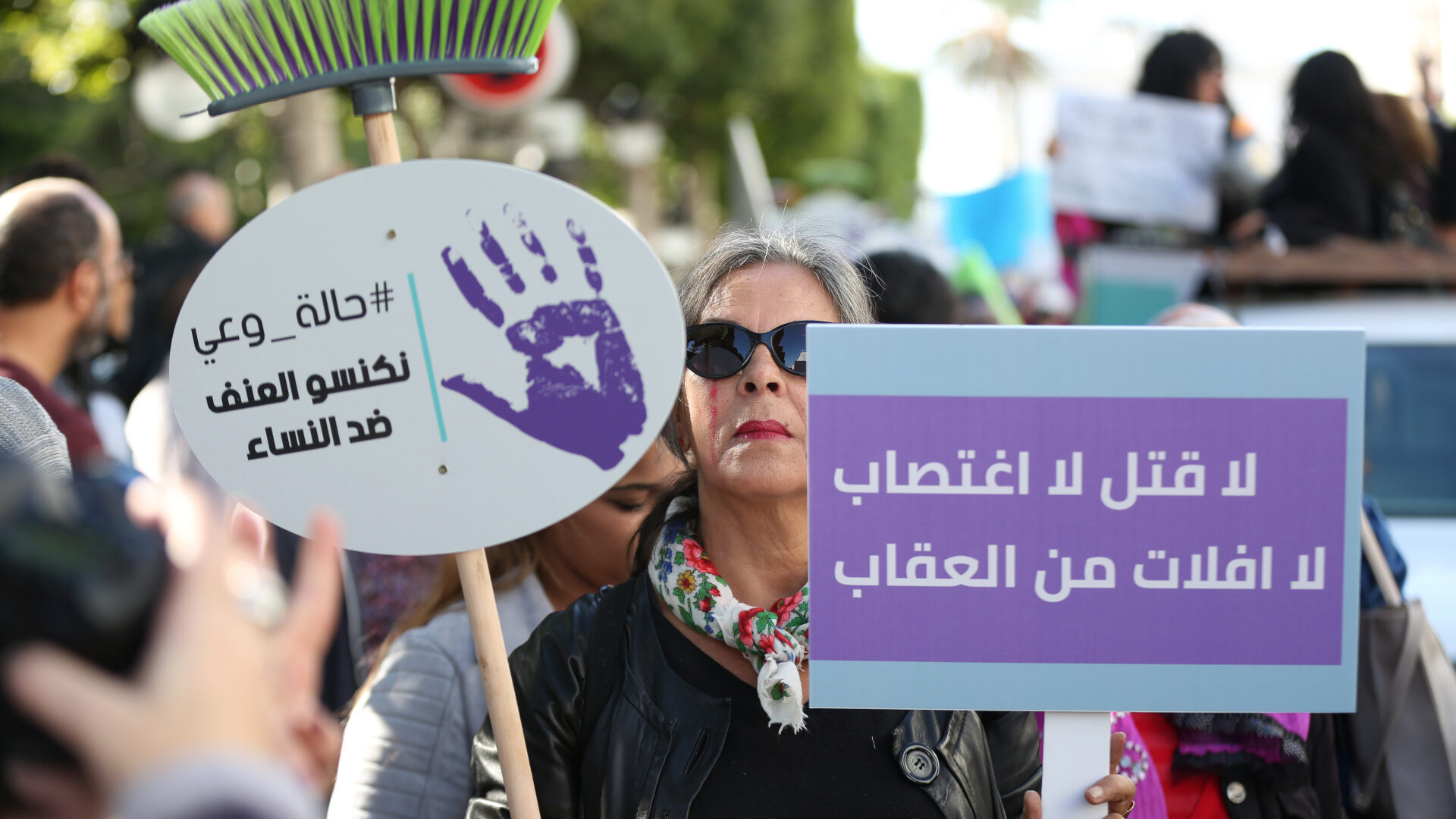Roar Magazine Women and Labor: Key Struggles in the MENA Region
 Woman holding signs against gender violence at a protest to denounce violence against women in Tunis, Tunisia. November 30, 2019. Photo: Mohamed Krit/Shutterstock
Woman holding signs against gender violence at a protest to denounce violence against women in Tunis, Tunisia. November 30, 2019. Photo: Mohamed Krit/ShutterstockEmbodying the intersection of gender and class, women trade union leaders are essential to the goals of ending gender violence and promoting women empowerment. Read the essay written by Valentine M. Moghadam supported by Union to Union and the Swedish affiliate Fackförbundet ST, under the project “Strengthening organizational capacities of women trade unionists.”
- Read this in:
- en

Comms
How do women and gender equality measures advance in a context of conflict, climate change, high unemployment, low labor force participation, limited democratization and a pandemic? These are challenges facing the Arab region as many citizens, women’s rights organizations, some governments and external partners seek wide-ranging institutional changes and an improved environment for women’s participation and rights.
Surveys show public support for some — but not all — proposals for gender equality. Equal inheritance rights for women, for example, remain off the table, even in progressive Tunisia. Family laws that confer most privileges to men and place women under the guardianship of male kin or the spouse are difficult to change. In most countries, secular feminist demands for gender equality are opposed by those associated with Islamist parties and even by many ordinary citizens. This is where women trade unionists can make a difference, by bridging such divides through class-based as well as gender-based arguments for women’s equality.
Read full article on the ROAR website:
Women and labor: key struggles in the MENA region
Embodying the intersection of gender and class, women trade union leaders are essential to the goals of ending gender violence and promoting women empowerment.
https://roarmag.org/essays/women-trade-unionists-tunisia/